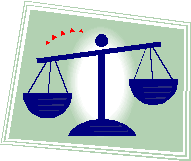
FDCPA Prohibits Wide Range of Misconduct
Sharp Thinking
Thinking
No. 63 Perspectives on Developments in the Law from The Sharp Law Firm, P.C. May 2012
FDCPA Prohibits Wide Range of Misconduct
Second of three issues on the Fair Debt Collection Practices Act.
Harassment, Abuse, Misleading Representations, “Unfair Practices” All Prohibited
As noted in the last issue of Sharp Thinking, the Fair Debt Collection Practices Act (15 U.S.C. §§ 1692 et seq.) (“FDCPA”) contains a plethora of provisions regulating how “debt collectors” may go about collecting “debts” within the meaning of the act. In this issue we will summarize those provisions.
The Initial Contact. The collector must give the debtor certain information concerning the debt, in writing, as part of the first communication if that communication is in writing, and within five days after the initial communication if it is oral. This notice must state: (1) the amount of the debt; (2) name of the creditor to whom the debt is owed; (3) that the collector will assume the debt to be valid unless the consumer within 30 days disputes the validity of the debt or a portion thereof; (4) that if the consumer claims in writing within the 30 days that the debt, or a portion thereof, is disputed, the collector will obtain verification of the debt or a copy of a judgment and mail a copy of such to the consumer; and (5) that, upon written request within the 30-day period, the collector will provide the name and address of the original creditor, if different from the current creditor. §1692g(a). If the consumer notifies the collector in writing during the 30-day period that the debt (or a portion) is disputed, he must cease collection of the debt (or the disputed portion) until he obtains verification of the debt or a copy of a judgment and mails same to the debtor. Similarly, if the consumer during the 30-day period requests the name and address of the original creditor, the collector must cease collection until he has mailed that information to the consumer. Section 1692g(a) does not prohibit collection efforts within the 30 days if the debtor has not responded, however. Durkin v. Equifax Check Serv., 406 F.3d 410 (7th Cir. 2005).
Litigation Common. Most litigation under § 1692g(a) has involved communications which included the statutorily-required information, but in a way that was confusing or in the context of other  inconsistent material which allegedly “overshadowed” the statutory information. See McKinney v. Cadleway Props., 548 F.3d 496 (7th Cir. 2008); Zemeckis v. Global Credit & Collec. Corp., No. 11-2334 (7th Cir. May 11, 2012). Because in this circuit confusion issues generally are weighed under the standard of an unsophisticated consumer (McMillan v. Collection Professionals, 455 F.3d 754 (7th Cir. 2006); Sims v. GC Serv., 445 F.3d 959 (7th Cir. 2006); Veach v. Sheeks, 316 F.3d 690 (7th Cir. 2003)), the collector who attempts to hide the statutory information or “pump up” the amount owed[1] runs a risk of being liable. However, confusion of the hypothetical unsophisticated consumer generally must be proven by scientific survey results, with the burden on plaintiff. See DeKoven v. Plaza Assoc., 599 F.3d 578 (7th Cir. 2010); Muha v. Encore Receivable Mgmt., 558 F.3d 623 (7th Cir. 2009); Durkin v. Equifax Check Serv., 406 F.3d 410 (7th Cir. 2005). But see Zemeckis, cited above. To assist the honest collector, the 7th Circuit has drafted a safe-harbor provision which may be used. Miller v. McCalla, Raymer, Padrick, Cobb, Nichols & Clark, 214 F.3d 872 (7th Cir. 2000); Chuway v. Nat’l Action Fin. Serv., 362 F.3d 944 (7th Cir. 2004). That language is optional (Williams v. OSI Ed. Serv., 505 F.3d 675 (7th Cir. 2007)), but when used thwarts any attempt to argue that § 1692g(a) has been breached. Riddle & Assoc. v. Kelly, 414 F.3d 832 (7th Cir. 2005).
inconsistent material which allegedly “overshadowed” the statutory information. See McKinney v. Cadleway Props., 548 F.3d 496 (7th Cir. 2008); Zemeckis v. Global Credit & Collec. Corp., No. 11-2334 (7th Cir. May 11, 2012). Because in this circuit confusion issues generally are weighed under the standard of an unsophisticated consumer (McMillan v. Collection Professionals, 455 F.3d 754 (7th Cir. 2006); Sims v. GC Serv., 445 F.3d 959 (7th Cir. 2006); Veach v. Sheeks, 316 F.3d 690 (7th Cir. 2003)), the collector who attempts to hide the statutory information or “pump up” the amount owed[1] runs a risk of being liable. However, confusion of the hypothetical unsophisticated consumer generally must be proven by scientific survey results, with the burden on plaintiff. See DeKoven v. Plaza Assoc., 599 F.3d 578 (7th Cir. 2010); Muha v. Encore Receivable Mgmt., 558 F.3d 623 (7th Cir. 2009); Durkin v. Equifax Check Serv., 406 F.3d 410 (7th Cir. 2005). But see Zemeckis, cited above. To assist the honest collector, the 7th Circuit has drafted a safe-harbor provision which may be used. Miller v. McCalla, Raymer, Padrick, Cobb, Nichols & Clark, 214 F.3d 872 (7th Cir. 2000); Chuway v. Nat’l Action Fin. Serv., 362 F.3d 944 (7th Cir. 2004). That language is optional (Williams v. OSI Ed. Serv., 505 F.3d 675 (7th Cir. 2007)), but when used thwarts any attempt to argue that § 1692g(a) has been breached. Riddle & Assoc. v. Kelly, 414 F.3d 832 (7th Cir. 2005).
Harassment and Abuse Prohibited. A collector may not engage in conduct the natural con-sequence of which is to harass, oppress or abuse any person in connection with the collection of a debt. § 1692d. Conduct within this proscription includes but is not limited to (1) use or threat of violence or other criminal means to harm the person, reputation, or property of any person; (2) use of obscene, profane or other abusive language; (3) causing a phone to ring or repeatedly engaging a person in phone conversation with intent to annoy, abuse or harass; (4) placing phone calls without meaningful disclosure of one’s identity, except as required in seeking location information. Note the prohibited conduct need not be visited on the debtor. Such impact on a third person also can violate the act. Horkey v. J.V.D.B. & Assoc., 333 F.3d 769 (7th Cir. 2003).
False and Misleading Representations Banned. Section 1692e prohibits any false, deceptive or misleading representation in connection with the collection of a debt. The misrepresentation need not be intentional (Evory v. RJM Acq. Funding, 505 F.3d 769 (7th Cir. 2007); Gearing v. Check Brokerage Corp., 233 F.3d 469 (7th Cir. 2000)), and in at least some instances need not be addressed to the debtor.  But see O’Rourke v. Palisades Acq. XVI, 635 F.3d 938 (7th Cir. 2011). However, a false statement must be material (Muha v. Encone Receivable Mgmt., 558 F.3d 623 (7th Cir. 2009); Hahn v. Triumph P’ships, 557 F.3d 755 (7th Cir. 2009)); and it must mislead or deceive the “unsophisticated consumer”. Ruth v. Triumph P’ships, 577 F.3d 790 (7th Cir. 2009); Wahl v. Midland Credit Mgmt., 556 F.3d 643 (7th Cir. 2009). Court papers intended to be read by judges are not within the section’s scope. Beler v. Blatt, Hasenmiller, Liebsker & Moore, 480 F.3d 470 (7th Cir. 2007). “Dunning letters” on law firm stationery without meaningful review by a lawyer violate this section. Nielsen v. Dickerson, 307 F.3d 623 (7th Cir. 2002); Boyd v. Wexler, 275 F.3d 642 (7th Cir. 2001). However, representations intended to mislead only judges do not. O’Rourke v. Palisades Acq. XVI, 635 F.3d 938 (7th Cir. 2011).
But see O’Rourke v. Palisades Acq. XVI, 635 F.3d 938 (7th Cir. 2011). However, a false statement must be material (Muha v. Encone Receivable Mgmt., 558 F.3d 623 (7th Cir. 2009); Hahn v. Triumph P’ships, 557 F.3d 755 (7th Cir. 2009)); and it must mislead or deceive the “unsophisticated consumer”. Ruth v. Triumph P’ships, 577 F.3d 790 (7th Cir. 2009); Wahl v. Midland Credit Mgmt., 556 F.3d 643 (7th Cir. 2009). Court papers intended to be read by judges are not within the section’s scope. Beler v. Blatt, Hasenmiller, Liebsker & Moore, 480 F.3d 470 (7th Cir. 2007). “Dunning letters” on law firm stationery without meaningful review by a lawyer violate this section. Nielsen v. Dickerson, 307 F.3d 623 (7th Cir. 2002); Boyd v. Wexler, 275 F.3d 642 (7th Cir. 2001). However, representations intended to mislead only judges do not. O’Rourke v. Palisades Acq. XVI, 635 F.3d 938 (7th Cir. 2011).
“Unfair Practices” Barred. A debt collector may not use unfair or unconscionable means to attempt to collect a debt. § 1692f. Conduct within this proscription includes but is not limited to: (1) collection of any amount (including any interest, fee, charge, or expense incidental to the principal obligation) unless such amount is expressly authorized by the debt agreement or otherwise permitted by law; (2) solicitation, acceptance and handling of post-dated checks in certain circumstances; (3) taking or threatening to take non-judicial action to effect dispossession or disablement of property as in certain circumstance; (4) communicating with a consumer regarding a debt by post card; (5) using any language or symbol, other than one’s address, on any envelope when communicating with a consumer by use of the mails or by telegram, except that one may use one’s true business name if it does not indicate that he is in the debt collection business. Intent is not required to violate this section. Turner v. J.V.D.B. & Assoc., 330 F.3d 991 (7th Cir. 2003). Again, violations often are determined by reference to the unsophisticated consumer. McMillan v. Collection Professionals, 455 F.3d 754 (7th Cir. 2006).
[1] The “amount of the debt” to be disclosed is the amount past due, not the overall balance, or the amount that may become due if litigation results. Barnes v. Advanced Call Center Tech., LLC, 493 F.3d 838 (7th Cir. 2007). The notice need not break out the amount owed among various elements (principal, interest, etc.), and if it does an error in apportioning the total among the elements will not violate the act if the total is correct. Hahn v. Triumph P’ships, 557 F.3d 755 (7th Cir. 2009); Wahl v. Midland Credit Mgmt., 556 F.3d 643 (7th Cir. 2009).
THE SHARP LAW FIRM, P.C.
1115 Harrison, P.O. Box 906, Mt. Vernon, IL 62864 • Telephone 618-242-0246 • Facsimile 618-242-1170
Business Transactions • Litigation • Financial Law • Problem Finances • Real Estate • Corporate • Commercial Disputes • Creditors’ Rights •
Arbitration • Employment Matters • Estate Planning • Probate
Terry Sharp: Tsharp@lotsharp.com; John T. Hundley: Jhundley@lotsharp.com; Bentley J. Bender: Bbender@lotsharp.com.
No. 63
